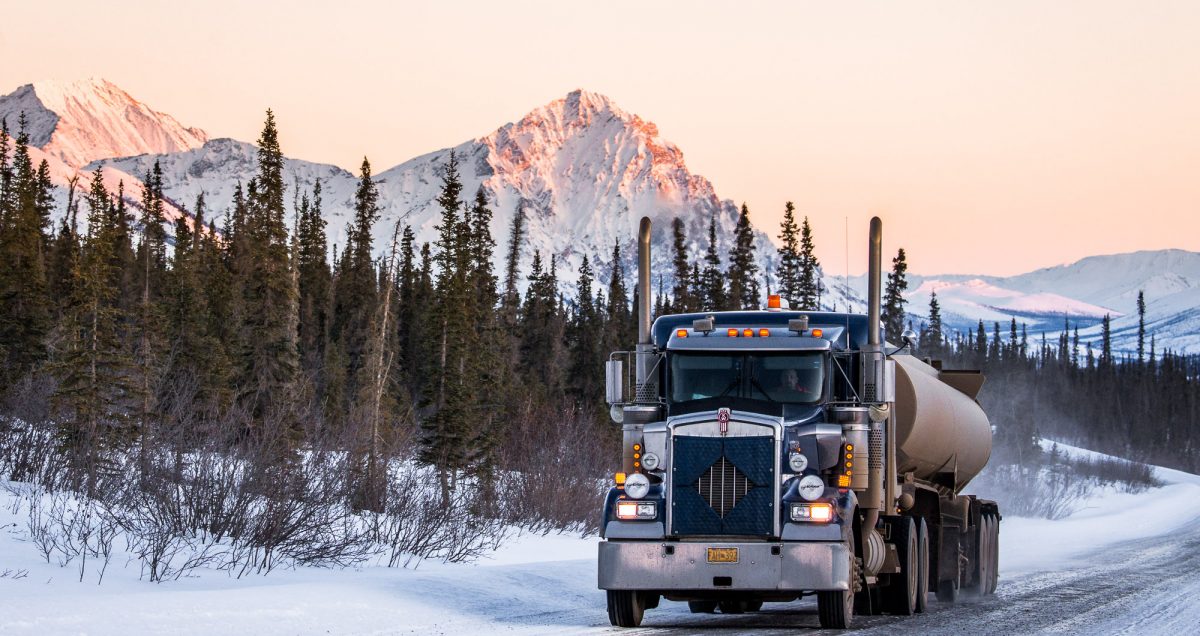Truck Collisions
Advocating For Clients Injured In Portland, Oregon Truck Accidents
Trucks create unique hazards on the road for cars, bicyclists and pedestrians. Because of the unique features of trucks that impact their operation on the roadway, truck collision claims and lawsuits are more involved and often more complicated.
 Back to all Practice Areas
Back to all Practice Areas Truck Collisions
The tremendous size of truck tires, axles and trailers, their difficulty moving in small areas, and their limited direct visual and indirect mirror visibility make them particularly dangerous to drivers in vehicles and vulnerable road and sidewalk users. People are sometimes hit and killed by trucks in circumstances where the truck driver did not even know s/he had hit anything, or when the driver thought s/he had instead hit a curb or road debris.
Many of the same Oregon legal rules and principles that apply to automobile collisions apply to collision with trucks (see Automobile Collisions page). A person injured in a collision with a truck has the same deadline for filing a lawsuit (two years) and may recover the same types of damages. The same fault rules apply and many of the same insurance coverages come into play.
First, while many automobile collision cases are resolved before a lawsuit is filed by an insurance claim, a lawsuit is often necessary to resolve a case involving injuries or death due to a collision with a truck. The need for a lawsuit, with depositions and other formal discovery, make legal representation essential to ensure that the person injured, or a decedent’s loved ones, recover full and fair damages.
Legal counsel is needed to orchestrate a full crash scene investigation and to pay for expert accident reconstructionists to show how the collision unfolded. Attorneys are required to present medical expert testimony to describe how the injuries or death occurred.
Collision Investigation And Reconstruction
Truck collisions are often serious and many cause fatal injuries. Therefore a specially trained crash team is often dispatched to the scene and a far more extensive investigative effort than usual is undertaken. Officers diagram the scene and take hundreds of pictures. They interview dozens of witnesses. A report from such a crash can contain hundreds of pages.
The decision whether to cite or criminally prosecute the driver can take months, since consultation with the District Attorney’s office is required. This process can create a significant delay in the release of the police report where the officer often will set forth her opinion about who is at fault for the collision.
Because police departments have limited training, money and other resources, it is crucial in a truck collision case that the crash analysis be reviewed by experts unconstrained by time and money to complete a thorough analysis. Accident reconstructionists (often engineers, retired police officers and ACTAR certified experts) can understand important details about the distances and speeds involved and arrive at the most credible reconstruction scenario.
Driver And Trucking Company Fault
In a truck collision both the driver and her employer company may bear responsibility. The driver may be at fault for driving the truck without “due care” (what lawyers call driving negligently).
In addition and separately, the trucking company may be at fault for failing to ensure that the driver was suitably credentialed, for failing to train the driver for the particular job, or for continuing to employ a driver whose driving record made her an inappropriate vehicle operator for the task at hand. For example, a company who hired a driver without learning that s/he had several prior fatal collisions may be separately negligent, as may one who did not train a driver how to drive its 18-wheeler in a busy urban area around bicyclists and pedestrians.
A trucking company may also be separately negligent for failing to outfit its truck with appropriate safety equipment, such as mirrors that would allow the driver to have clear visibility down the full distance of the long trailers and alongside the tall blind-spots, where bicyclists in adjacent bicycle lanes and pedestrians on the curb may be present. A company may be negligent for failing to train its drivers that bicyclists have the right of way in Oregon’s many designated bicycle lanes.
Insurance Coverage: Trucking Companies
The same general principles apply to insurance coverage in a truck collision case as in a vehicle collision case (see our Car Accidents page here) with these important differences:
- Bodily Injury Claim
Commercial trucking companies frequently carry $500,000 to $1 million in liability coverage. While allowing for a greater recovery these higher insurance limits may make necessary the involvement of economists to calculate an injured person’s or decedent’s family’s true economic losses.
- Personal Injury Protection (PIP) Claim
Commercial policies covering trucking companies rarely have PIP coverage. However, a person injured in a collision with a truck who needs medical treatment or is unable to work will be covered by his own automobile PIP which pays for such bills before health insurance.
- Uninsured/Underinsured Motorist (UM/UIM) Coverage
Because trucking companies are rarely uninsured, UM claims are infrequent. Because companies often have high bodily injury coverage limits, UIM claims are not common, but possible.
TCNF personal injury attorneys have considerable experience handling truck collision cases. For examples on how we can help you see our Representative Cases page.
